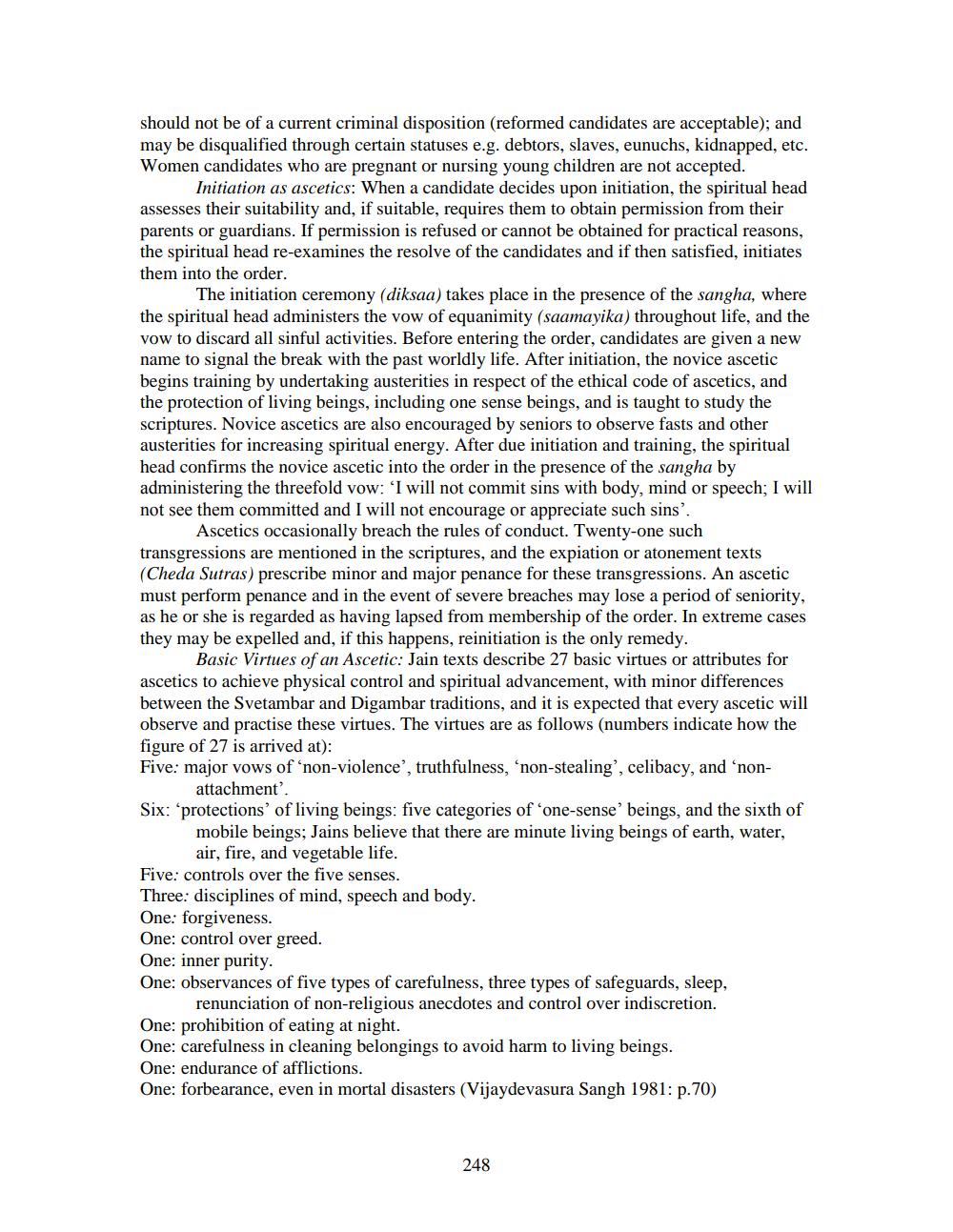________________
should not be of a current criminal disposition (reformed candidates are acceptable); and may be disqualified through certain statuses e.g. debtors, slaves, eunuchs, kidnapped, etc. Women candidates who are pregnant or nursing young children are not accepted.
Initiation as ascetics: When a candidate decides upon initiation, the spiritual head assesses their suitability and, if suitable, requires them to obtain permission from their parents or guardians. If permission is refused or cannot be obtained for practical reasons, the spiritual head re-examines the resolve of the candidates and if then satisfied, initiates them into the order.
The initiation ceremony (diksaa) takes place in the presence of the sangha, where the spiritual head administers the vow of equanimity (saamayika) throughout life, and the vow to discard all sinful activities. Before entering the order, candidates are given a new name to signal the break with the past worldly life. After initiation, the novice ascetic begins training by undertaking austerities in respect of the ethical code of ascetics, and the protection of living beings, including one sense beings, and is taught to study the scriptures. Novice ascetics are also encouraged by seniors to observe fasts and other austerities for increasing spiritual energy. After due initiation and training, the spiritual head confirms the novice ascetic into the order in the presence of the sangha by administering the threefold vow: 'I will not commit sins with body, mind or speech; I will not see them committed and I will not encourage or appreciate such sins'.
Ascetics occasionally breach the rules of conduct. Twenty-one such transgressions are mentioned in the scriptures, and the expiation or atonement texts (Cheda Sutras) prescribe minor and major penance for these transgressions. An ascetic must perform penance and in the event of severe breaches may lose a period of seniority, as he or she is regarded as having lapsed from membership of the order. In extreme cases they may be expelled and, if this happens, reinitiation is the only remedy.
Basic Virtues of an Ascetic: Jain texts describe 27 basic virtues or attributes for ascetics to achieve physical control and spiritual advancement, with minor differences between the Svetambar and Digambar traditions, and it is expected that every ascetic will observe and practise these virtues. The virtues are as follows (numbers indicate how the figure of 27 is arrived at):
Five: major vows of 'non-violence', truthfulness, 'non-stealing", celibacy, and 'nonattachment'.
Six: 'protections' of living beings: five categories of 'one-sense' beings, and the sixth of mobile beings; Jains believe that there are minute living beings of earth, water, air, fire, and vegetable life.
Five: controls over the five senses.
Three: disciplines of mind, speech and body.
One: forgiveness.
One: control over greed.
One: inner purity.
One: observances of five types of carefulness, three types of safeguards, sleep.
renunciation of non-religious anecdotes and control over indiscretion.
One: prohibition of eating at night.
One: carefulness in cleaning belongings to avoid harm to living beings.
One: endurance of afflictions.
One: forbearance, even in mortal disasters (Vijaydevasura Sangh 1981: p.70)
248




